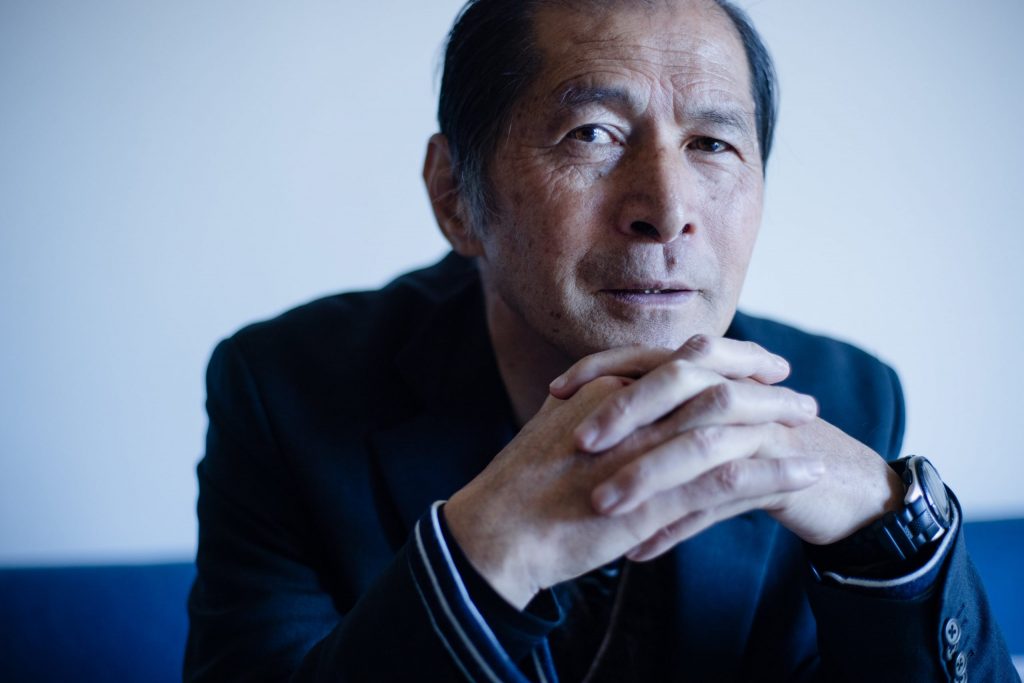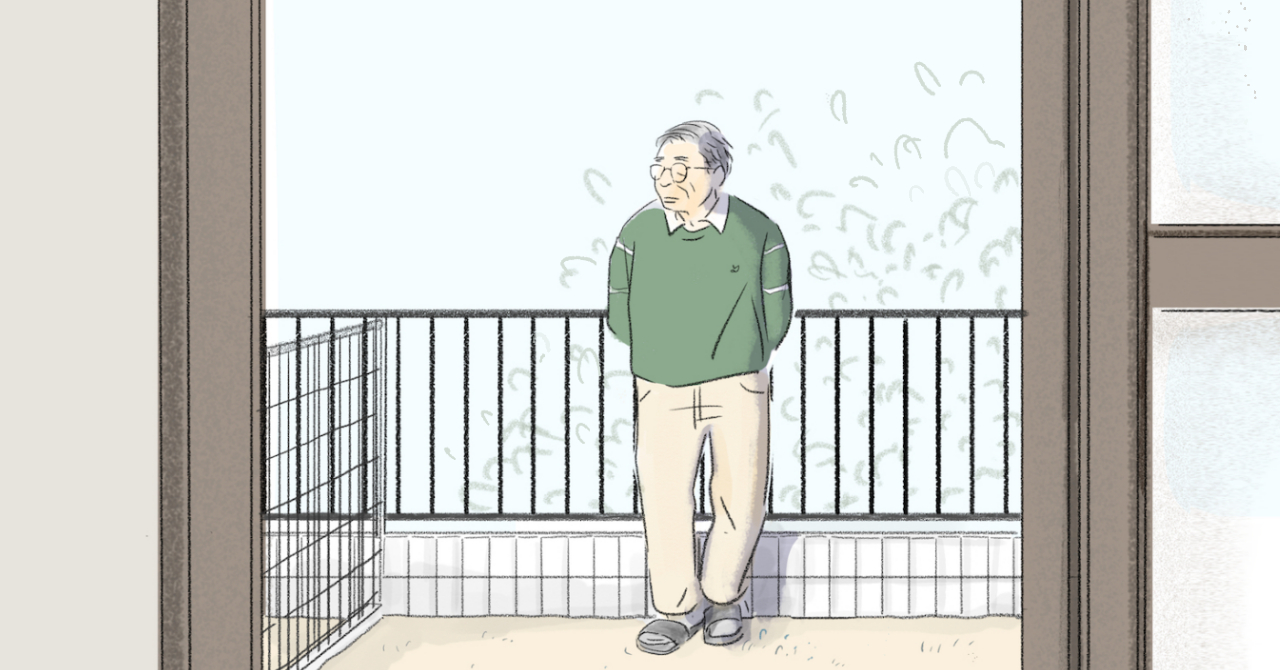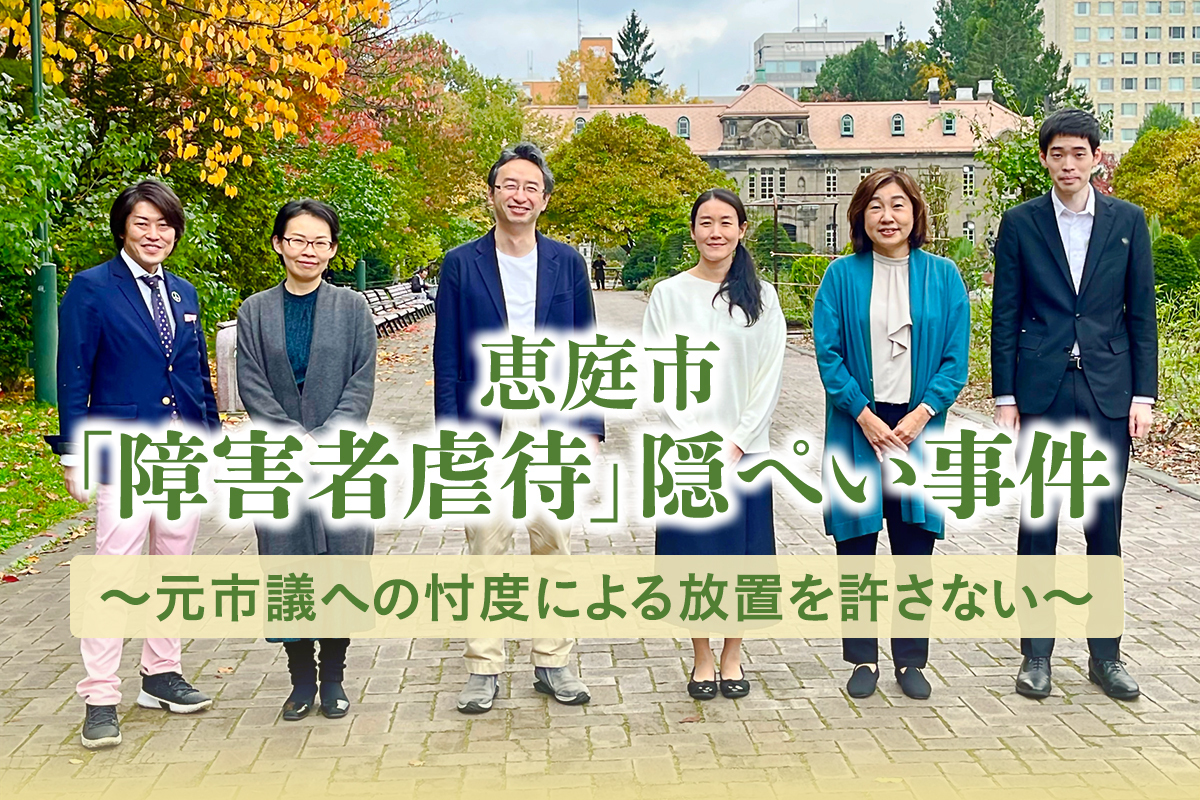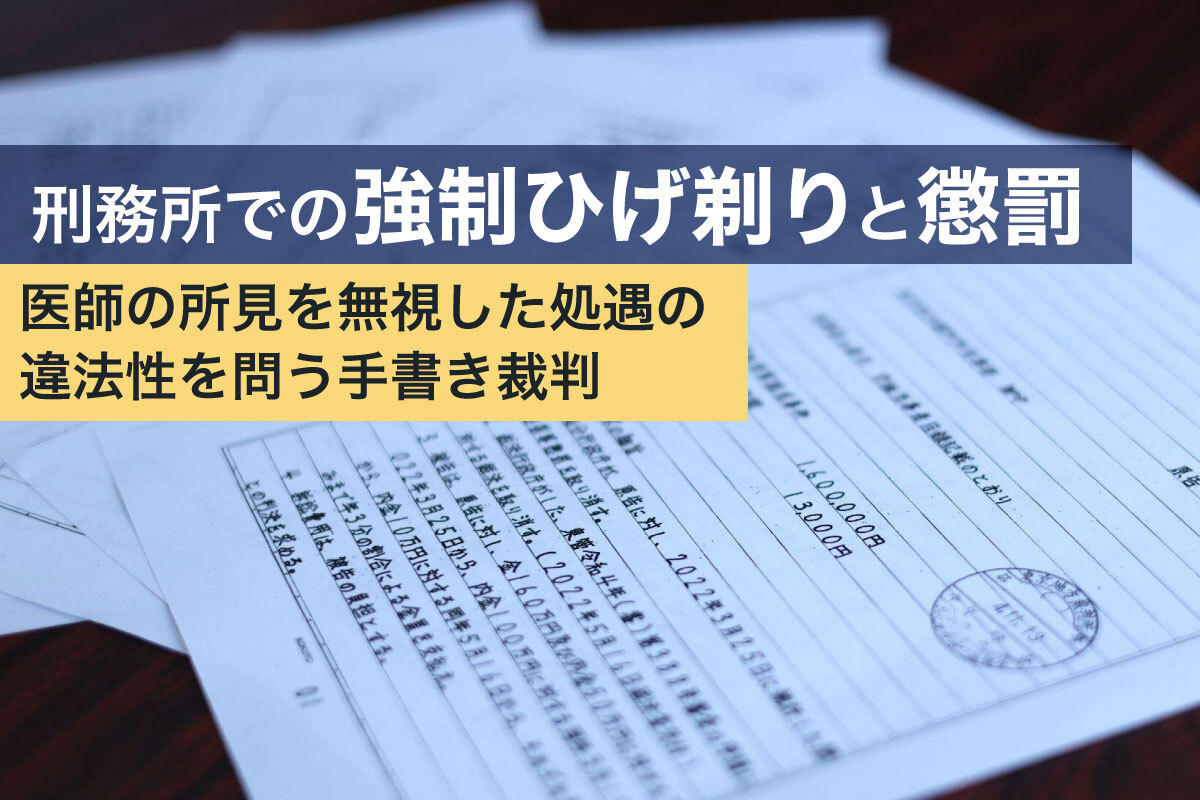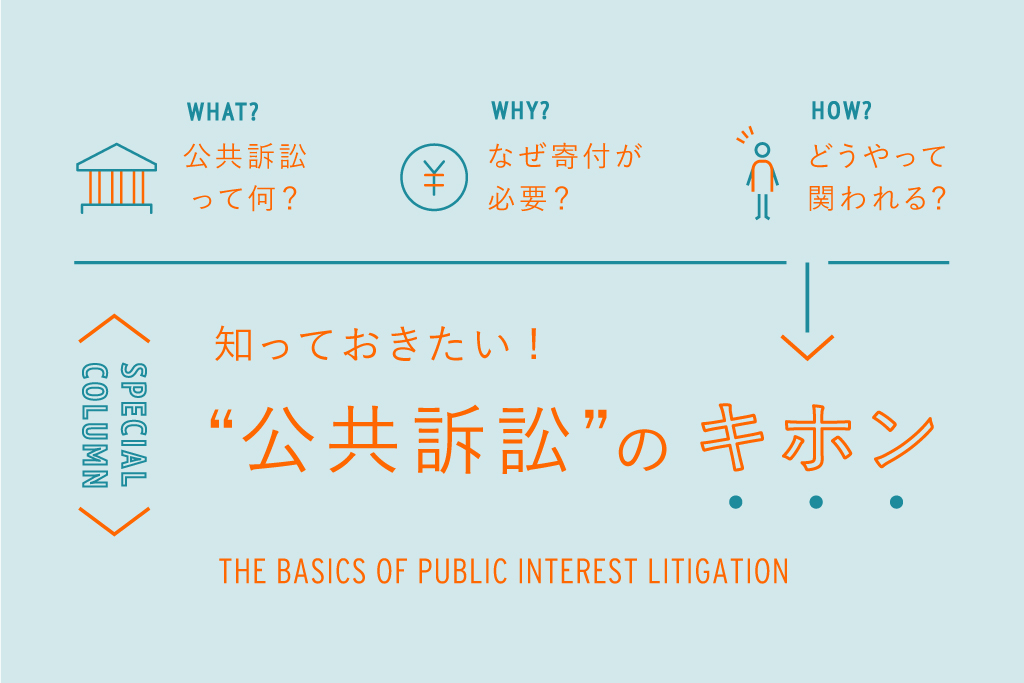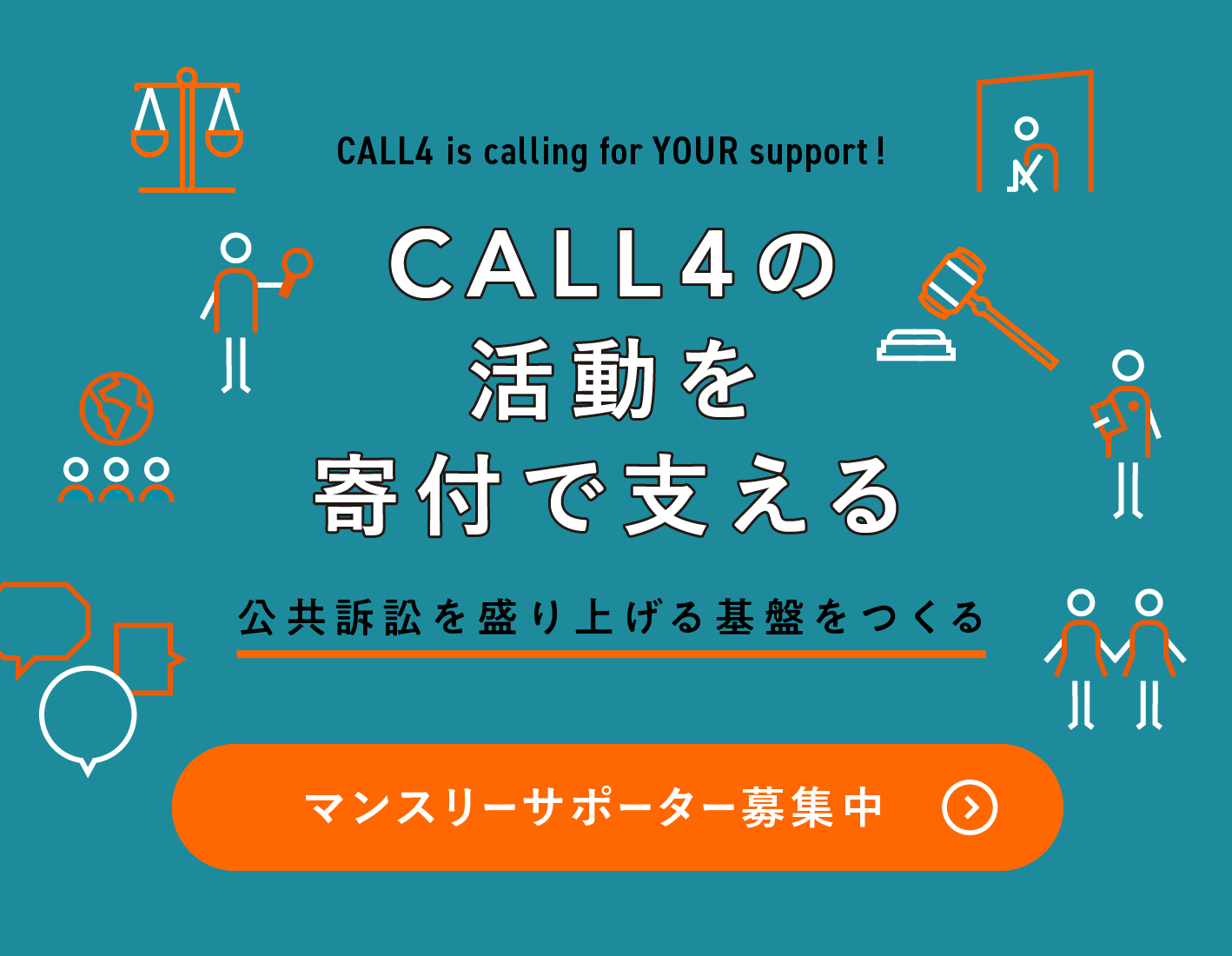「鳥は空に魚は水に人は社会に」訴訟【アーカイブ】 Psychiatric State Compensation Litigation
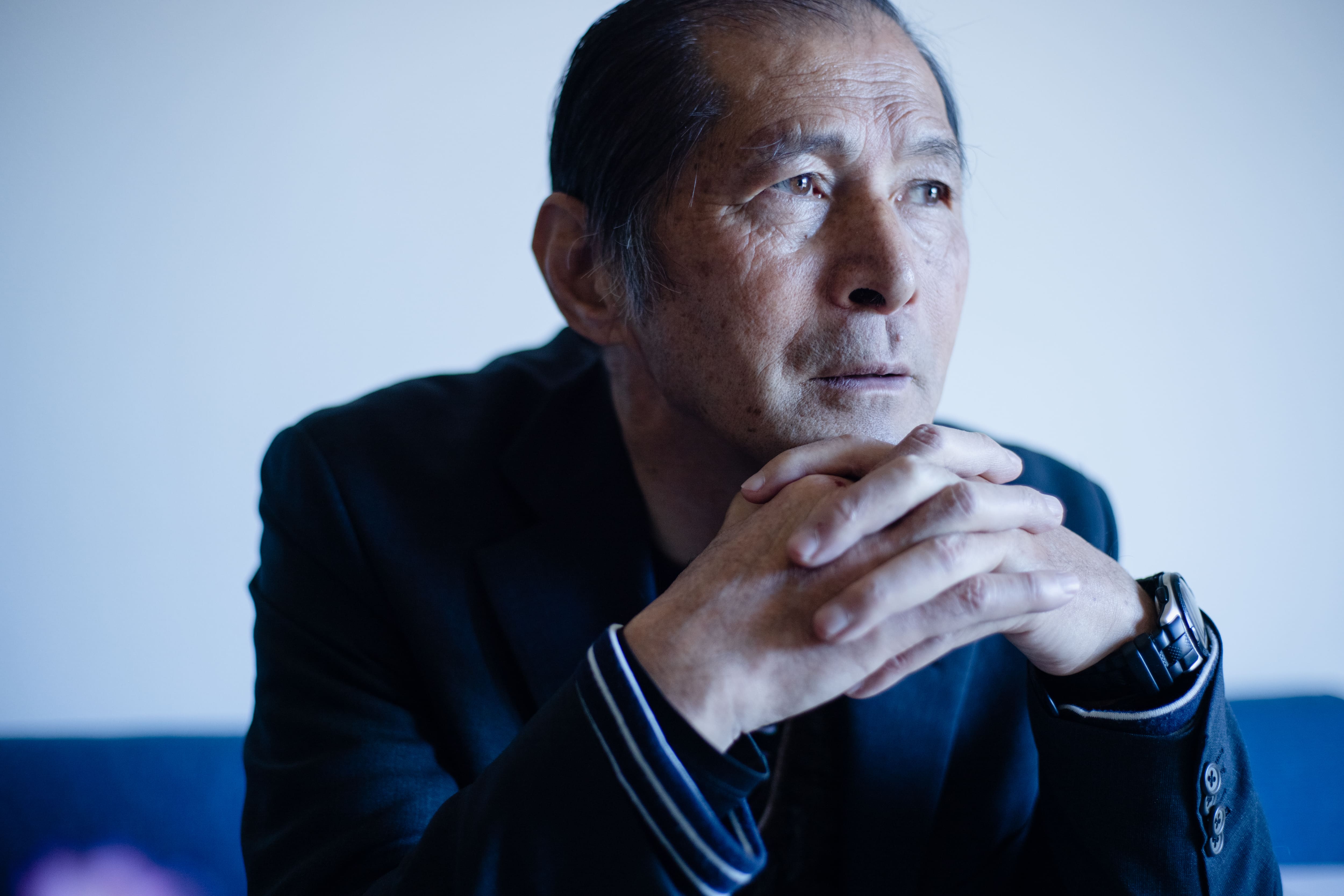
精神病院に閉じ込められたまま人生の大部分を過ごす人たちが多くいます。精神障害を持つ人も地域で暮らせるようにという世界の潮流に逆行した日本の精神医療は、国際的にも大きな批判を浴びています。この訴訟は、日本の悲惨な精神医療を長年にわたり放置してきた政府の不作為責任を問い、国家賠償請求を行うものです。私たちは、この訴訟を通じて、病院中心に偏った精神医療から地域精神医療への転換が行われることを目指します。 Many people spend most of their lives confined in psychiatric hospitals. Japan's mental health care has gone against the global trend of allowing people with mental disorders to live in the community, and has been criticized internationally. This lawsuit seeks to hold the government responsible for its inaction for years in neglecting the deplorable state of mental health care in Japan, and to seek compensation from the state. Through this lawsuit, we aim to see a shift from hospital-centered mental health care to community mental health care.
国の謝罪を求めて提訴
私たち精神医療国家賠償請求訴訟研究会(略称・精神国賠研)は伊藤 時男さんを原告として国への提訴を行った。
彼は、東京と福島の精神科病院において40年余りの入院を経験した。精神症状と思われるエピソードは、発病の初期を除いてほとんどなかった。入院時も毎日院外に働きに出たり、病院内の給食の補助として働き、退院を目指していた。しかし、積極的に彼を社会に戻そうとする動きは無く、人生の貴重な時間を病院生活によって奪われてしまった。
このように、精神科病院への入院によって人生を奪われた例は伊藤さんだけではない。
人権が尊重されない日本の精神医療
今も、病気は消失しながらも精神科病院への入院を継続している「社会的入院者」と呼ばれる人たちが、国の実態調査で7万人余り、実際には、はるかに多い10数万人存在する。きちんとした社会資源、例えば多様なタイプのグループホームやコミュニテイメンタルヘルスケアチームの存在があれば、彼らは市民として地域社会の中で暮らせるのに、病院の病棟に社会から隔離され続けている。とんでもないことである。医療の名のもとに許し難い人権侵害を我が国の精神科医療は行い続けている。私たちはこれを告発する。
強制入院の多さや、隔離・拘束の多さや、その遷延化、患者への虐待事例の多発、家族に責任を押し付けて公的責任を負わない入院制度、多剤大量療法と呼ばれる薬物療法に偏った医療など、我が国の精神科医療の問題点を挙げればきりがない。
◆WHOからの勧告(1968年)
このような実態を、国はなぜ長年にわたり放置して来たのか、知らなかったのだろうか。知らなかったはずは無い。日本の精神科医療が入院に偏っており、精神障害者が地域社会の中で暮らすという、権利を奪われていることに最初に警告を発したのは、1968年のクラーク勧告だった。WHOの顧問として日本を訪れて日本の精神科医療の実態を調査して勧告を行ったイギリスの精神科医師、DHクラーク氏はこのとき既に問題点を指摘し、改善するように我が国に7項目の勧告を行っている。
しかし、我が国はこの改善勧告を無視した。世界的には地域精神医療の流れが当たり前になり、ノーマライゼーションによって「完全参加と平等」の理念で障害者が地域社会から隔離収容されることが無くなった後も、我が国では国が設けた医療金融公庫の低利融資によって精神科病院を作り続けた。
◆長い入院期間
世界の主要な先進国が精神科ベッドの削減を行ったのに対して、我が国の精神科ベッドは増え続けて、ついに日本の病院病床数の2割、そして現在では世界の精神科ベッドの2割を占めるまでになった。平均の入院期間はOECDの平均が28日に対して日本は280日と10倍に達している。さらに、司法の監視のない入院制度が強制入院を増やしている背景がある。本人の同意のない強制入院は人権を厳しく制限するため、欧米では裁判所が入院期間を監視するのが普通であるのに対し、日本では司法の関与が全くない。精神科医師の恣意的判断でいくらでも入院を延長できる制度設計になっている。
人権擁護の観点から見れば、とんでもない滅茶苦茶な制度である。変えなくてはならない。
◆宇都宮病院事件(1984年)
1984年に発覚した栃木県の宇都宮病院事件は社会問題となり、それまでの精神衛生法が精神保健法に変わるきっかけとなった。日本政府は1985年、国連の場において改善することを表明した。精神科病院での長期入院者の地域移行を進めることを謳い、グループホームや作業所などの地域での受け皿を一定数用意した。しかし、精神科ベッドは減らず、社会的入院者が地域社会に戻ることが出来ないという状況は変わることは無かった。
なぜ変わらないのか?
日本の精神科病院の9割が私立病院である。経営が重視され、障害者の社会復帰よりも入院を継続して経営を安定させるということが起きやすい。患者の人生を奪って利益を得るということはとんでもないことだが、それが当たり前になっているのが現状だ。
なぜ裁判を必要とするのか?合意形成できないのか
現状を変えるには、超党派の議員連盟を作り、精神科関連の職能団体、学会、家族会などがまとまり、メデイアによる後押しを受けて臨時特別措置法を作り、精神病院の解体と地域移行を進めていくという路線がある。
しかし、これは一部の政治家の猛烈な反発があり、実行は不可能と言ってよい。これまで、公衆衛生審議会をはじめとする各種の審議会や検討会等で繰り返し地域精神医療への転換は提起されてきた。しかし、一向に変わらなかった歴史をみれば、合意形成による精神科病院の解体が事実上不可能であることは明白である。
裁判の目的
この裁判の目的は、国際社会からも、我が国の内部での審議会答申でもたびたび指摘されながら、変わることの無かった我が国の精神医療政策遂行上の不作為責任を法廷の場で明らかにすることにある。もちろん勝訴を目指すが、勝つことだけが目的ではない。
裁判を通じて、いかに多くの人々が国の精神医療施策の犠牲になってきたか、現在もなっているかを明らかにする。原告だけでなく、多くの当事者の皆さんやその家族の声を証言として司法に届ける。
犠牲者をこれ以上出さないためには、長年にわたる国の不作為責任を法廷が認定し、国に謝罪させて政策転換を余儀なくさせるしかないのだ。
今後の方針
私たちの当面の目標は、第1次の提訴である東京地裁での伊藤時男さんの裁判に向けて、多くの当事者や家族の声を証言として届ける事である。初公判が2021年3月1日に決まり、その準備作業が続けられている。
私たちの裁判闘争は、東京地裁では終わらない。鹿児島で原告に名乗りを上げていただいた方も待機しておられる。二次、三次訴訟を全国各地で起こす予定だ。
そして、当事者による訴訟に続いての目標は、家族が原告となる、精神国賠家族訴訟である。我が国の精神保健福祉法の体系は、これまでも現在も家族に多くの責任を押し付けてきた。公的責任の放棄である。
◆家族の負担
「医療保護入院」という制度は、本人同意のない強制入院である。(旧来の精神衛生法の体系では「同意入院」と呼ばれていたが、この「同意」は本人ではなく家族による同意が原則である。)この制度は、本人同意がなく、治療契約が結べていないにも関わらず、医療費は公費負担されず、本人や家族が医療費を支払う義務を負うという、滅茶苦茶な制度である。
精神医療には、本人の意思による任意入院と、どうしても強制が避けられない状況での措置入院だけで充分である。任意入院は本人の意思によるものだから保険適用に合理性があるし、措置入院は医療契約が無いことを前提とした強制入院のために全額が公費負担である。
加えて、強制入院は人権を著しく制限するため、諸外国では司法が介在して医療側への監視が行われるが、我が国では全く司法の関与がない。日本の精神科医療が異常に多い強制入院率を示しているのもこの医療保護入院が濫用されているからに他ならない。家族は精神的にも経済的にも重い負担を長年にわたり強いられている。
今後、精神国賠訴訟、および精神国賠家族訴訟でこの医療保護入院制度の不当性を訴え、廃止を目指して行く。
私たちは、この裁判を通じて我が国の精神医療がだれでも安心して利用できる医療になるように願っている。
鳥は空に 魚は水に 人は社会に
寄付金の使途
今回のクラウドファンディングの寄付金は、下記の用途に活用させて頂きます。
・弁護士報酬
・訴訟事務費用(印紙代)
・広報費用(パンフレット作成)
・交通費(弁護士の活動費、宣伝)
・宿泊費(原告希望者への聞き取り)
・通信費(相談電話、ニュース郵送切手代)
Filed a lawsuit demanding an apology from the government
We, the Psychiatric National Compensation Litigation Study Group (abbreviated as Psychiatric Compensation Research Institute), filed a lawsuit against the government with Mr. Tokio Ito as the plaintiff.
He spent over 40 years in psychiatric hospitals in Tokyo and Fukushima. There were almost no episodes that appeared to be psychiatric symptoms, except at the beginning of the illness. Even when he was hospitalized, he worked outside the hospital every day and worked to help with school lunches inside the hospital, with the aim of being discharged. However, there were no active efforts to reintegrate him back into society, and precious time in his life was taken away by his stay in the hospital.
Ms. Ito is not the only person whose life was taken away from her life by being admitted to a psychiatric hospital.
Japanese mental health care where human rights are not respected
Even now, a national survey shows that there are over 70,000 people who continue to be hospitalized in psychiatric hospitals, even though their illness has disappeared. There are tens of thousands of people. With proper social resources, such as various types of group homes and community health care teams, they could live as citizens in their communities, but they remain isolated from society in hospital wards. This is outrageous. Psychiatric medicine in our country continues to commit unforgivable human rights violations in the name of medical care. we denounce this.
The number of compulsory hospitalizations, isolation and restraint, and their prolongation; frequent cases of patient abuse; a hospitalization system that places responsibility on family members and ignores public responsibility; and a bias towards drug therapy called multi-drug therapy. There are countless problems with psychiatric care in Japan, such as poor medical care.
◆Recommendation from WHO (1968)
Didn't the country know why this situation had been ignored for so many years? There's no way I didn't know. The Clark Recommendation in 1968 first raised the alarm that psychiatric care in Japan was biased toward hospitalization, and that mentally ill people were being deprived of their right to live in the community. Mr. DH Clark, a British psychiatrist who visited Japan as an advisor to the WHO and investigated the actual state of psychiatric care in Japan and made recommendations, had already pointed out problems at that time and recommended seven points for Japan to improve. The following recommendations are being made.
However, Japan ignored this recommendation for improvement. Community mental health care has become the norm around the world, and even after normalization meant that people with disabilities were no longer isolated from the local community based on the ideals of "full participation and equality," in Japan, medical financing was established by the government. They continued to build psychiatric hospitals with low-interest loans from the public finance corporation.
◆Long hospitalization period <br>While the world's major developed countries have reduced the number of psychiatric beds, the number of psychiatric beds in Japan has continued to increase, and now accounts for 20% of the total number of hospital beds in Japan. They now account for 20% of the world's psychiatric beds. The average length of hospitalization in Japan is 280 days, which is 10 times longer than the OECD average of 28 days. Furthermore, the hospitalization system, which lacks judicial oversight, is behind the increase in forced hospitalizations. Forced hospitalization without the person's consent severely restricts human rights, so in Europe and the United States it is common for courts to monitor the length of hospitalization, but in Japan there is no judicial involvement at all. The system is designed to allow a patient's hospitalization to be extended as long as they wish at the discretion of the psychiatrist.
From the perspective of human rights protection, this is an incredibly messed up system. It has to change.
◆Utsunomiya Hospital Incident (1984)
The Utsunomiya Hospital incident in Tochigi Prefecture, which was discovered in 1984, became a social issue and triggered the change from the Mental Health Act to the Mental Health Act. In 1985, the Japanese government announced at the United Nations that it would make improvements. The plan calls for the transition of long-term psychiatric hospital patients to the local community, and a certain number of community facilities such as group homes and workshops have been prepared. However, the number of psychiatric beds did not decrease, and the situation in which socially hospitalized patients were unable to return to the community remained unchanged.
Why hasn't it changed?
90% of Japan's psychiatric hospitals are private hospitals. Emphasis is placed on business management, and it is more likely that disabled people will be kept hospitalized to stabilize business rather than reintegrating them into society. It is outrageous to profit from stealing a patient's life, but the reality is that it has become commonplace.
Why do we need a trial? Is it not possible to form a consensus?
In order to change the current situation, we need to form a bipartisan parliamentary group, bring together psychiatry-related professional organizations, academic societies, family associations, etc., and, with support from the media, create a temporary special measures law that will require the dismantling of psychiatric hospitals and their relocation to local communities. There is a path forward.
However, this is met with fierce opposition from some politicians, and can be said to be impossible to implement. Until now, the idea of switching to community mental health care has been repeatedly raised in various councils and study groups, including the Public Health Council. However, if we look at history, which has not changed at all, it is clear that it is virtually impossible to dismantle psychiatric hospitals through consensus building.
purpose of trial
The purpose of this trial was to clarify in court Japan's responsibility for its inaction in implementing its mental health policy, which has been repeatedly pointed out both by the international community and by internal council reports, but has not changed. be. Of course, we aim to win the case, but winning is not the only goal.
Through the trial, it will be revealed how many people have been, and still are, victims of the country's mental health policies. The voices of not only the plaintiff but also many other parties and their families will be delivered to the judiciary as testimony.
The only way to prevent more victims from happening is for a court to find the government responsible for its years of inaction, force the government to apologize, and change its policies.
Plan from now on
Our immediate goal is to hear the voices of many of the parties involved and their families as testimony in preparation for Tokio Ito's trial at the Tokyo District Court, which is the first stage of the lawsuit. The first trial has been set for March 1, 2021, and preparations are continuing.
Our legal battles do not end at the Tokyo District Court. People who have come forward as plaintiffs in Kagoshima are also waiting. We plan to file secondary and tertiary lawsuits across the country.
Following the litigation by the parties, the goal is to pursue a family lawsuit, in which the family becomes the plaintiff . Japan's mental health and welfare law system has, and still is, placed a lot of responsibility on families. It is an abdication of public responsibility.
◆The burden on families The system of ``medical protection hospitalization'' is forced hospitalization without the patient's consent. (In the old mental health law system, it was called "consent hospitalization," but in principle, this "consent" came from the family, not the patient.) This system does not require consent from the patient and does not require a treatment contract. It is a messed-up system in which medical expenses are not covered by public funds, and the patient and his or her family are responsible for paying the medical expenses.
For mental health care, voluntary hospitalization based on the patient's will and forced hospitalization in situations where forced hospitalization is unavoidable are sufficient. Voluntary hospitalization is based on the individual's will, so it makes sense for it to be covered by insurance, and voluntary hospitalization is compulsory hospitalization based on the assumption that there is no medical contract, so the entire amount is borne by public funds.
In addition, because forced hospitalization severely limits human rights, in other countries the judiciary intervenes to monitor medical care, but in Japan there is no judicial involvement at all. The reason that Japan's psychiatric care has an abnormally high rate of forced hospitalization is precisely because this system of medically protected hospitalization is being abused. Families have been forced to bear heavy emotional and financial burdens for many years.
In the future, we will appeal the unfairness of this medical protection hospitalization system through mental health and national compensation lawsuits and psychiatric and national compensation family lawsuits, and aim to abolish it.
We hope that through this trial, mental health care in our country will become a medical care that everyone can use with peace of mind.
Birds in the sky, fish in the water, people in society 
How donations will be used
This crowdfunding donation will be used for the following purposes.
・Lawyer's fee ・Litigation administrative expenses (stamp fee)
・Public relations expenses (brochure creation)
・Transportation expenses (lawyer activity expenses, advertising)
・Accommodation expenses (interview with prospective plaintiff)
・Communication costs (consultation phone calls, news postage stamps)
関連コラム
-
2021. 3. 4
あなたにおすすめのケース Recommended case for you
- 外国にルーツを持つ人々 Immigrants/Refugees/Foreign residents in Japan
- ジェンダー・セクシュアリティ Gender/Sexuality
- 医療・福祉・障がい Healthcare/Welfare/Disability
- 働き方 Labor Rights
- 刑事司法 Criminal Justice
- 公正な手続 Procedural Justice
- 情報公開 Information Disclosure
- 政治参加・表現の自由 Democracy/Freedom of Expression
- 環境・災害 Environment/Natural Disasters
- 沖縄 Okinawa
- 個人情報・プライバシー Personal information/Privacy
- アーカイブ Archive
- 全てのケース ALL

